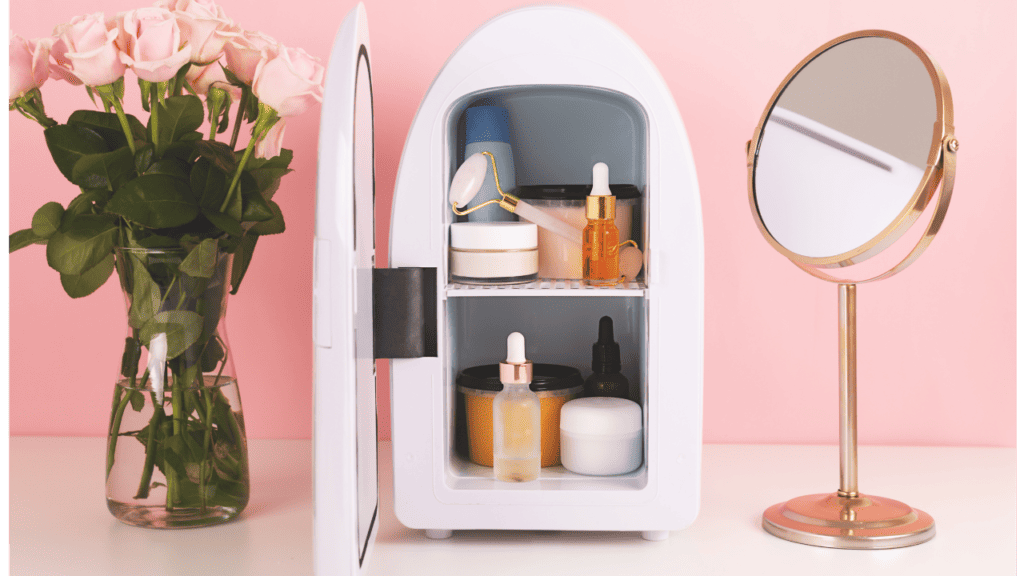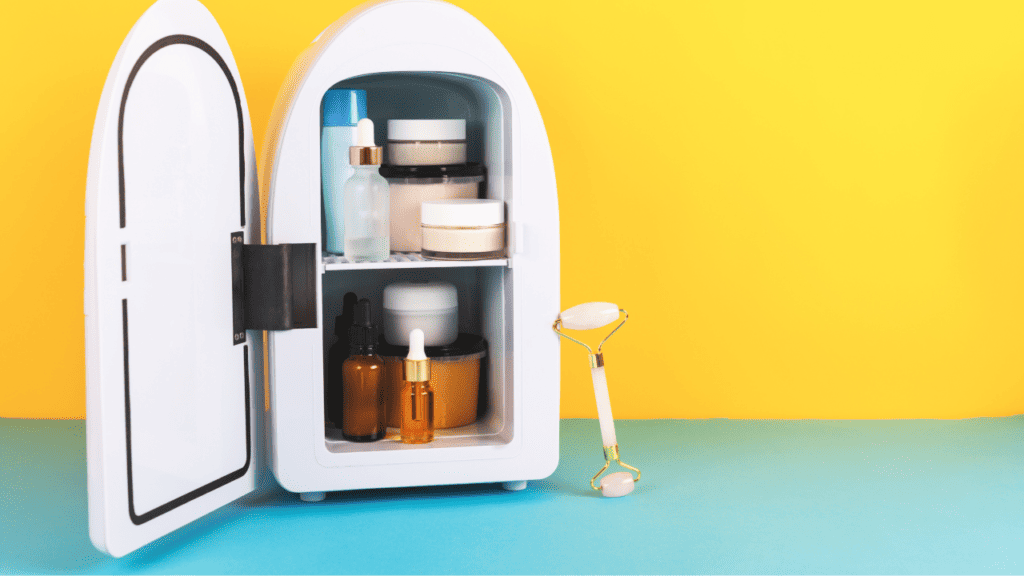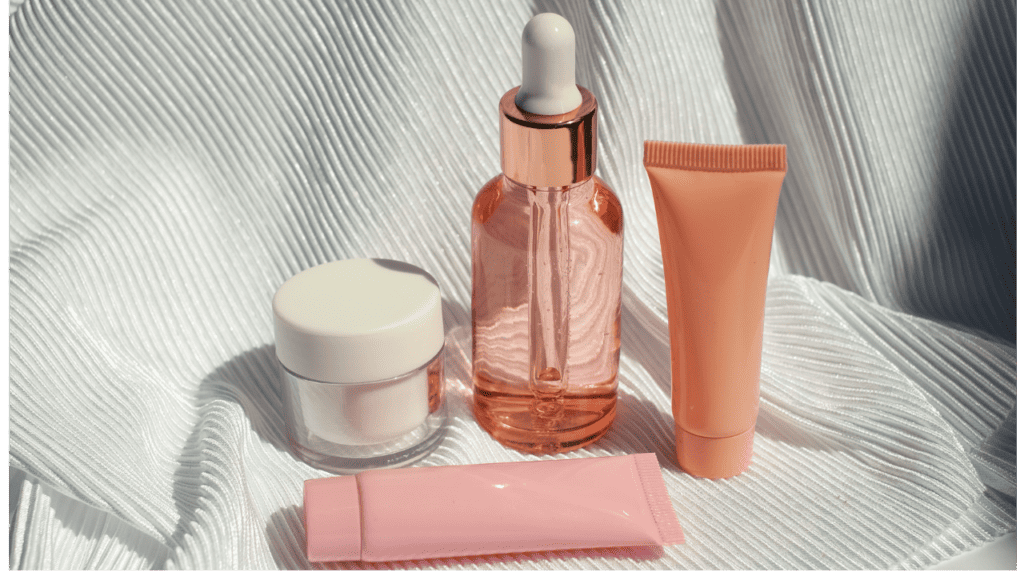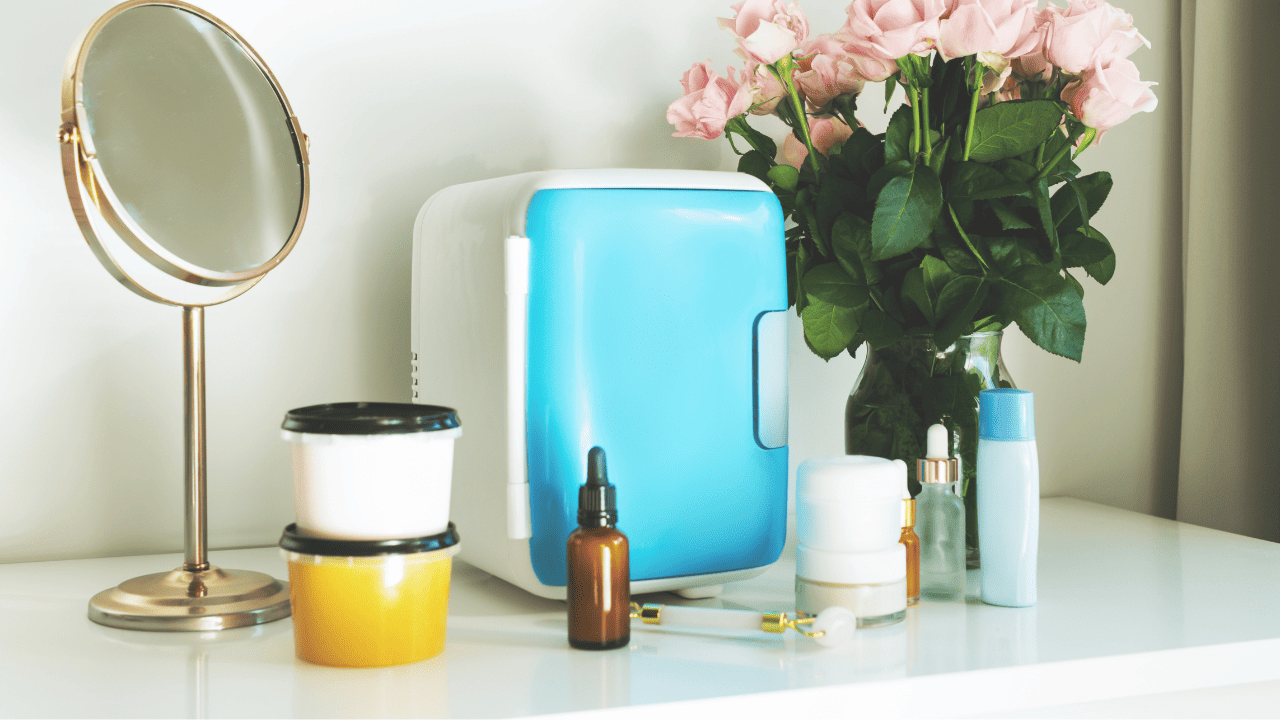Welcome to the world of skincare refrigeration, a trend that has gained popularity among beauty enthusiasts and skincare professionals alike. But before you start moving your entire skincare collection to the fridge, it’s important to understand that not all products are suited for cooler temperatures. In this comprehensive guide, we’ll explore the dos and don’ts of skincare refrigeration, focusing on what products benefit from a chill and which ones are better off on your bathroom shelf. Whether you’re a skincare novice or a seasoned aficionado, this article will provide you with valuable insights to optimize the efficacy and longevity of your skincare regimen.
The Science of Skincare Refrigeration

Understanding the impact of temperature on skincare
Skincare products are formulated with a variety of ingredients, each with its own unique stability and efficacy profile. Temperature can play a crucial role in maintaining these qualities. Refrigeration can help extend the shelf life of certain products, especially those with active ingredients or natural formulations that are prone to degradation at higher temperatures. However, not all ingredients react positively to colder environments – some may lose their effectiveness or even change in texture. Let’s delve deeper into what kinds of products thrive under cooler conditions and why.
Ingredients and Products That Benefit from Cooling
Certain types of skincare products and ingredients are particularly suited for refrigeration. Products with high concentrations of vitamin C, for instance, can remain more stable and effective when stored in cooler temperatures. Natural and organic products, which often lack preservatives, can also benefit from refrigeration, as it helps slow down bacterial growth and product degradation. Eye creams are another category where refrigeration can be beneficial, as the cool temperature can help reduce puffiness around the eyes. Understanding the nature of these products is key to optimizing their performance through proper storage.
Skincare Products to Refrigerate

Ideal Candidates for the Beauty Fridge
Let’s explain the types of skincare products that are perfect for refrigeration:
- Eye Creams and Gels: The cooling effect helps reduce under-eye puffiness and offers a soothing sensation.
- Certain Serums: Serums with ingredients like vitamin C, hyaluronic acid, or peptides can benefit from refrigeration as it can extend their shelf life and potency.
- Organic and Natural Products: Without preservatives, these products are more susceptible to bacteria and degradation. Cooling can help preserve their integrity.
- Face Masks: Especially those with aloe or gel-based formulas can provide an extra soothing and calming effect when applied cold.
Storage Tips for Chilled Skincare
While refrigerating these products, it’s essential to ensure they are tightly sealed to prevent exposure to moisture. Also, consider storing them in a separate skincare fridge or a designated area in your kitchen fridge to avoid contamination with food items. Regularly check the expiry dates, and be aware of any changes in texture or smell that might indicate the product is no longer good to use.
Join us in the next sections as we explore what products should stay out of your fridge, debunk common myths, and offer alternative storage tips. Our goal is to help you make informed decisions for the best care of your skincare products and, ultimately, your skin.
Skincare Products Not to Refrigerate

Products Better Left at Room Temperature
While some skincare products benefit from the chill of a fridge, others are better suited to room temperature. Here are some of the products you should think twice before refrigerating:
- Oil-Based Products: Products like oil-based serums and cleansers can become cloudy or even solidify in the cold, losing their smooth texture and efficacy.
- Clay Masks and Thick Creams: Refrigeration can cause these products to harden, making them difficult to apply and potentially less effective.
- Products with Certain Active Ingredients: Ingredients like retinoids and benzoyl peroxide may become less effective when exposed to cold temperatures.
Understanding the Negative Impact of Cold Refrigeration
Refrigeration can alter the chemical composition of certain products, affecting their texture, fragrance, and absorption properties. This can lead to reduced effectiveness and a less enjoyable application experience. Always check the label for storage recommendations and when in doubt, default to room temperature.
Myths and Misconceptions
Dispelling Skincare Refrigeration Myths
There are many myths surrounding the refrigeration of skincare products. Here, we’ll address some of the most common misconceptions:
- Myth: Refrigerating all skincare products will prolong their shelf life.
- Reality: Only certain products benefit from refrigeration; others can actually deteriorate faster in cold conditions.
- Myth: The colder the skincare product, the better its performance.
- Reality: Some products lose their effectiveness and texture when too cold.
Relying on Evidence-Based Information
It’s important to rely on scientific evidence and professional advice when deciding how to store your skincare products. What works for one product may not work for another.
Alternative Storage Tips

Storing Skincare without a Fridge
Not all skincare products need the chilly confines of a fridge. Here are some tips for storing your skincare effectively at room temperature:
- Keep Away from Direct Sunlight: Sun exposure can degrade the active ingredients in skincare products.
- Cool, Dry Places: Store your products in a cool, dry place to maintain their efficacy.
- Tight Sealing: Ensure the lids and caps of your products are tightly sealed to prevent exposure to air and bacteria.
Maintaining Product Efficacy and Longevity
Proper storage is key to ensuring that your skincare products perform as intended and last as long as possible. By following these simple tips, you can keep your skincare routine effective and enjoyable.
Conclusion
Understanding the dos and don’ts of skincare refrigeration is crucial for anyone looking to get the most out of their skincare regimen. While refrigeration can be beneficial for certain products, others are best stored at room temperature. By paying attention to the specific needs of each product, you can maintain their effectiveness and longevity. Remember, skincare is not one-size-fits-all, and what works for one person may not work for another. Always read labels, consult with skincare professionals when in doubt, and most importantly, listen to your skin. Happy skin caring!
frequently asked questions (FAQs)
Does refrigerating skincare products really make a difference?
Yes, it can. Refrigeration can prolong the shelf life and enhance the effectiveness of certain skincare products, especially those with active ingredients or natural formulations. However, not all products benefit from being refrigerated, and some may even be adversely affected by cold temperatures.
Can I refrigerate my retinol or vitamin C serums?
Vitamin C serums can often benefit from refrigeration as it helps stabilize the vitamin C, which is prone to oxidation. However, retinol generally doesn’t require refrigeration and can maintain its stability at room temperature. Always check the specific product instructions or consult with a dermatologist for advice.
How do I know if a skincare product should be refrigerated?
The best way to determine this is to read the product’s label and instructions. Many manufacturers will specify if refrigeration is recommended. Additionally, products with natural ingredients, organic formulations, or certain active ingredients like peptides may benefit from refrigeration.
Can refrigerating my face masks enhance their effectiveness?
Yes, refrigerating certain types of face masks, especially those with soothing ingredients like aloe vera or cucumber, can enhance their soothing and anti-inflammatory properties, making them feel more refreshing upon application.






